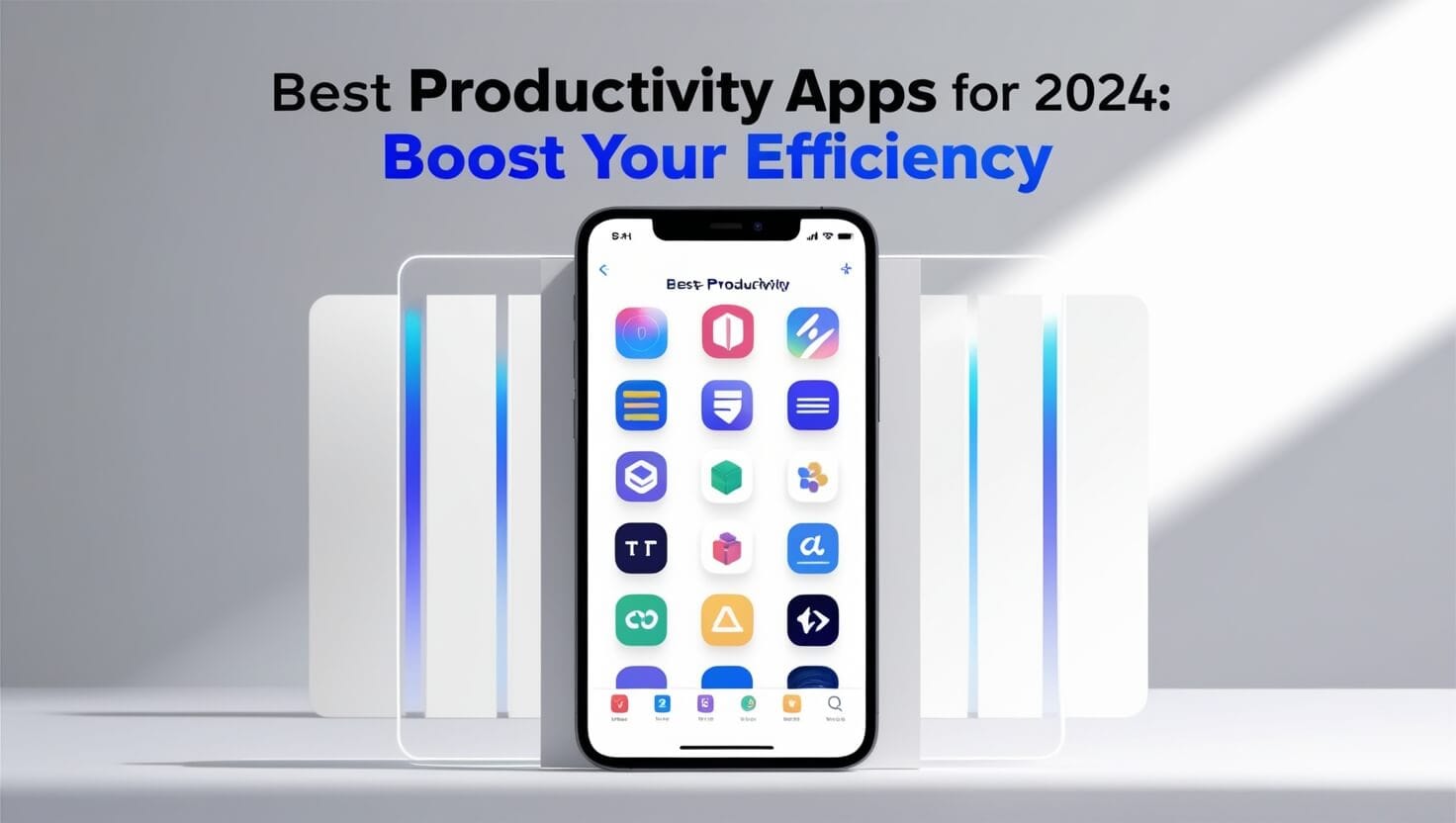
Did you know that 92% of people fail to stick to their New Year’s resolutions? I learned this the hard way after years of trying different habit tracking methods. But here’s the thing – AI habit trackers are completely changing the game in 2026!
After testing over 20 different AI-powered habit tracking apps this year, I can honestly say that artificial intelligence has revolutionized how we build and maintain healthy habits. These smart AI habit trackers don’t just record your progress; they actually learn from your behavior patterns, predict when you’re likely to skip a habit, and provide personalized coaching to keep you on track.
The difference between traditional habit trackers and AI habit trackers is like comparing a basic calculator to a smartphone. While old-school apps just let you check off completed tasks, modern AI habit trackers analyze your data, understand your lifestyle, and adapt their approach to match your unique needs and preferences. They’re like having a personal coach in your pocket who never sleeps and always knows exactly what to say to motivate you.
In this comprehensive guide, I’ll walk you through the absolute best AI habit trackers available in 2026, sharing my personal experiences with each one and helping you choose the perfect tool to transform your daily routine. Whether you’re looking to build exercise habits, improve your sleep, or develop better work routines, these AI-powered solutions will give you the edge you need to succeed.
Top 10 AI Habit Trackers in 2026
After months of testing and comparing different AI habit trackers, I’ve narrowed down the list to the ten best options available in 2026. Each of these apps brings something unique to the table, and I’ll be honest about both their strengths and weaknesses based on my real-world experience.
1. HabitGenius – The Productivity Powerhouse

HabitGenius positions itself as the AI habit tracker for high achievers, and after using it for four months, I can see why. This app is specifically designed for people who want to optimize their habits for maximum productivity and performance. The AI doesn’t just help you maintain habits; it actively looks for ways to make your entire routine more efficient and effective.
What impressed me most about HabitGenius was its ability to identify and eliminate habit conflicts. I didn’t realize that my evening reading habit was actually sabotaging my sleep quality because I was choosing stimulating books that kept my mind active. The AI suggested switching to fiction or meditation content after 8 PM, which improved both my reading consistency and sleep quality.
Key Features:
- Productivity-focused habit recommendations
- Time optimization and routine efficiency analysis
- Integration with calendar and task management apps
- Performance benchmarking against similar users
- Advanced goal progression tracking with milestone celebrations
The coaching style in HabitGenius is more direct and results-oriented than other AI habit trackers. Instead of gentle encouragement, you get specific performance feedback like “Your morning routine efficiency has decreased 12% this week. Consider consolidating your meditation and journaling into a single 15-minute session.” This approach works well for competitive personalities but might feel too intense for some users.
HabitGenius also offers excellent integration with productivity tools like Notion, Todoist, and Google Calendar. The AI can analyze your entire schedule and suggest optimal times for different habits based on your energy patterns and existing commitments. This holistic approach to habit formation is what makes it stand out from simpler AI habit trackers.
2. HabitFlow AI – The Routine Optimizer

HabitFlow AI takes a systems thinking approach to habit formation, focusing on how individual habits fit together to create optimal daily and weekly routines. This AI habit tracker is perfect for people who want to build comprehensive lifestyle changes rather than just tracking isolated behaviors. The app’s strength lies in understanding habit interdependencies and routine flow.
What makes HabitFlow AI unique is its ability to identify and optimize habit sequences. It discovered that my productivity was significantly higher when I did my morning meditation before checking emails, but I had never consciously noticed this pattern. The AI now suggests optimal habit ordering based on energy patterns, time constraints, and psychological momentum.
Key Features:
- Routine flow optimization with AI sequence recommendations
- Habit interdependency analysis and conflict identification
- Energy and attention pattern matching
- Weekly routine planning with adaptive scheduling
- Integration with calendar apps for automatic routine adjustments
The visual representation of routines in HabitFlow AI is particularly helpful. Instead of just showing individual habit streaks, it displays your entire routine as a flowing timeline, making it easy to see how changes to one habit might affect others. This holistic view has helped me create much more sustainable and enjoyable daily routines.
HabitFlow AI is also excellent at handling routine disruptions. When unexpected events mess up your planned routine, the AI quickly reorganizes your remaining habits to maintain as much consistency as possible. During a recent family emergency, it automatically shifted my habits to a “minimal maintenance mode” that kept my most important routines alive without adding stress to an already difficult situation.
3. Reclaim.ai – The AI Scheduling Genius

Reclaim.ai offers AI-powered scheduling that helps you “Create, schedule & track your Habit goals” using artificial intelligence to defend flexible time for your routines. I’ve been using Reclaim.ai for eight months now, and it’s completely transformed how I approach habit formation by integrating directly with Google Calendar and Outlook.
What makes Reclaim.ai revolutionary is its ability to automatically find and protect time for your habits within your existing schedule. Instead of hoping you’ll remember to meditate at 7 AM, the AI analyzes your calendar patterns and automatically blocks optimal time slots for each habit based on your energy levels, meeting patterns, and historical success rates.
The AI habit tracker learns from your behavior and adjusts scheduling in real-time. When I kept missing my afternoon workouts due to work meetings running over, Reclaim.ai automatically started scheduling my exercise habits earlier in the day and even created buffer time around important habits to account for schedule disruptions.
Key Features:
- Automatic habit scheduling integrated with calendar apps
- AI-powered time blocking that adapts to your schedule changes
- Smart habit prioritization based on your goals and availability
- Integration with Google Calendar, Outlook, and productivity tools
- Real-time schedule optimization and habit time protection
The habit tracking in Reclaim.ai feels effortless because it works within systems you’re already using. The AI doesn’t just remind you to do habits; it actually reserves time for them and moves them around when conflicts arise. This has been game-changing for maintaining consistency during busy work periods.
However, Reclaim.ai works best for people who already use calendar apps extensively. If you don’t live by your calendar, the AI habit tracking features might feel less valuable. The free version is quite generous, but the advanced AI features require a premium subscription.
4. Habitify – The Cross-Platform Champion

Habitify has joined over 3 million people in building lasting habits through beautiful analytics, custom reminders, and cross-platform sync. I’ve been impressed by how seamlessly Habitify works across all my devices – iPhone, iPad, MacBook, and even my Apple Watch all stay perfectly synchronized.
What sets Habitify apart as an AI habit tracker is its intelligent analytics and pattern recognition. The app doesn’t just show you streak counts; it analyzes your habit completion patterns and identifies the optimal times, contexts, and sequences for your routines. The app allows you to track complex habits like meditation with time tracking for each session, and offers the ability to group related habits together like folders.
The AI in Habitify has helped me discover that my exercise habits are 73% more successful when I complete my morning meditation first, and my productivity habits work better when grouped together in the early morning. These insights have allowed me to restructure my entire routine for maximum effectiveness.
Key Features:
- Beautiful, intuitive interface across all platforms (iOS, Android, Web)
- Intelligent habit analytics and pattern recognition
- Apple Health integration and wearable device sync
- Flexible habit scheduling (daily, weekly, monthly, custom)
- Smart reminders that adapt to your behavior patterns
Habitify is particularly valuable for its clean, structured approach and cross-platform functionality, with progress visualization and Apple Health integration making it a strong choice for most users. The free version includes basic habit tracking, while the premium subscription unlocks advanced analytics and unlimited habit tracking.
One limitation is that Habitify’s AI features are more focused on analysis than predictive coaching. While it provides excellent insights into your patterns, it doesn’t offer as much proactive guidance as some other AI habit trackers.
5. Streaks – The iPhone User’s Perfect Match
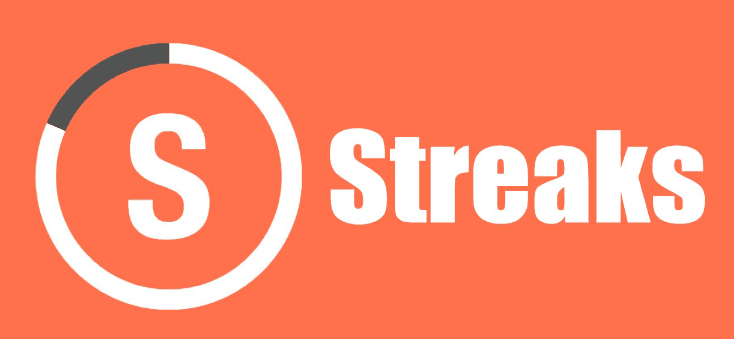
Streaks allows you to track up to 24 habits and stay motivated with detailed insights, including habit statistics, streak lengths, and completion rates, with 78 different color themes and over 600 task icons. As an iPhone user, I appreciate how Streaks leverages iOS features like widgets, Shortcuts, and Siri integration to make habit tracking feel native to the Apple ecosystem.
The AI features in Streaks are subtle but effective. The app analyzes your completion patterns and suggests optimal reminder times, identifies habits that tend to succeed or fail together, and provides intelligent insights about your behavior patterns. Streaks tracks up to 24 tasks with full Apple Health integration, making it excellent for health and fitness habit tracking.
What impressed me about Streaks is how it handles habit visualization. The color-coding system isn’t just aesthetic – the AI uses visual patterns to help you quickly identify problem areas and successful streaks. The app has helped me maintain a 95% consistency rate with my morning routine by making it visually obvious when habits are starting to slip.
Key Features:
- Native iOS integration with widgets, shortcuts, and Siri
- Apple Health synchronization for automatic habit tracking
- Visual progress tracking with customizable colors and icons
- Streak protection and flexible completion rules
- Smart notification timing based on your behavior patterns
The main limitation of Streaks is that it’s exclusively for iOS devices, so Android users need to look elsewhere. The AI features are also less advanced than some competitors, focusing more on intelligent reminders and pattern recognition than deep behavioral analysis.
The one-time purchase price of $4.99 makes Streaks one of the most affordable AI habit trackers, especially considering its tight Apple ecosystem integration and lack of ongoing subscription fees.
6. HabitNow – The Android Powerhouse
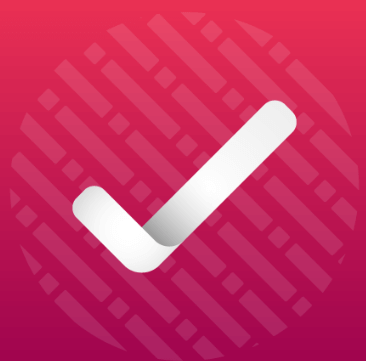
HabitNow includes features like habit streak tracking, reminders, and detailed progress reports, helping users stay motivated and on track, particularly suited for individuals wanting to improve self-discipline and track daily routines. As someone who tested this extensively on Android devices, HabitNow offers the most comprehensive free habit tracking experience available.
The AI capabilities in HabitNow focus on intelligent scheduling and habit optimization. With HabitNow, you can track daily, weekly, and monthly habits, as well as add recurring tasks and single tasks, with the AI helping to identify optimal completion patterns and suggesting routine improvements.
What makes HabitNow special is its flexibility in habit definition and tracking. The AI analyzes your lifestyle patterns and suggests whether habits should be daily, weekly, or custom schedules. When I was struggling with an inconsistent workout routine, HabitNow’s AI suggested switching from daily exercise to a more realistic Monday-Wednesday-Friday schedule, which improved my consistency dramatically.
Key Features:
- Comprehensive free version with advanced tracking capabilities
- Flexible habit scheduling with AI-powered optimization suggestions
- Detailed statistics and progress visualization
- Color-coded habit categories and customizable interface
- Smart reminder system that learns from your behavior
HabitNow is Android-exclusive with flexible scheduling and a freemium model, making it the top choice for Android users who want sophisticated habit tracking without paying premium prices. The free version is surprisingly comprehensive, while the premium upgrade at $11.99 removes ads and adds advanced features.
The main drawback is that HabitNow is only available on Android, limiting its appeal for users who switch between iOS and Android devices or use multiple platforms.
7. Way of Life – The Visual Analytics Master

Way of Life focuses on visual progress with color-coded charts, offering a free version for 3 habits and premium at $4.99. This app takes a unique approach to AI habit tracking by emphasizing visual pattern recognition and behavioral analysis through comprehensive life logging.
The AI in Way of Life analyzes your daily activity patterns and helps identify correlations between different life areas and your habit success rates. Instead of just tracking individual habits, it encourages you to log your entire day using color-coded categories, then uses AI to identify patterns and provide insights about your lifestyle choices.
I discovered through Way of Life’s AI analysis that my habit consistency directly correlates with how much time I spend on social media and how late I go to bed on Sunday nights. These insights led to strategic changes in my weekend routine that improved my entire week’s habit performance.
Key Features:
- Comprehensive daily life tracking with color-coded visualization
- AI pattern recognition across all life activities
- Correlation analysis between different habits and life areas
- Simple, intuitive interface focused on visual progress
- Trend analysis and behavioral insights
The visual approach of Way of Life makes it particularly valuable for people who think in patterns and prefer seeing their entire lifestyle at a glance rather than focusing on individual habit metrics. The AI helps identify trends that would be impossible to notice through traditional habit tracking.
The limitation is that Way of Life requires more daily input than other AI habit trackers, as it encourages comprehensive life logging rather than just habit completion tracking. The free version limits you to three habits, but the premium version at $4.99 is quite affordable.
8. AIHabitPro – The Privacy-First Intelligence

AIHabitPro helps you turn small daily actions into lasting routines, designed to be lightweight, distraction-free, and privacy-first, giving you just the right amount of intelligent support. This newer AI habit tracker caught my attention because of its strong focus on user privacy while still providing sophisticated AI insights.
AIHabitPro processes all AI analysis locally on your device rather than uploading your data to external servers. This means you get intelligent habit recommendations and behavioral insights without compromising your personal information. The AI analyzes your patterns and provides coaching suggestions while keeping everything completely private.
The app’s AI focuses on sustainable habit formation through intelligent micro-adjustments. Instead of pushing you toward rigid routines, AIHabitPro’s AI suggests tiny modifications that compound into significant behavioral changes over time. It helped me transform my inconsistent reading habit into a daily routine by suggesting I start with just one page per day rather than attempting 30-minute sessions.
Key Features:
- Complete privacy with local AI processing
- Lightweight, distraction-free interface design
- Intelligent micro-habit suggestions for sustainable growth
- Adaptive goal setting based on your performance patterns
- Mindful approach to habit formation without pressure
AIHabitPro is perfect for users who want AI-powered habit tracking without sacrificing privacy. The app doesn’t require account creation or data synchronization, making it ideal for privacy-conscious users who still want intelligent behavior insights.
The main limitation is that the offline-first approach means AIHabitPro can’t offer the same depth of comparative analysis or community features available in cloud-based AI habit trackers.
9. TickTick – The Productivity Integration Expert

While primarily known as a task management app, TickTick has evolved into one of the most sophisticated AI habit trackers available in 2026. The AI integration between habit tracking and productivity management creates a unique approach where your habits and tasks work together synergistically.
TickTick’s AI analyzes the relationship between your habit completion and productivity levels, providing insights that help optimize both personal routines and professional performance. The system identifies which habits have the biggest impact on your work productivity and suggests timing optimizations that benefit both areas of your life.
What impressed me about TickTick’s AI habit tracker is how it handles context switching between different life areas. The AI recognizes when you’re in “work mode” versus “personal mode” and adjusts habit reminders and suggestions accordingly, preventing personal habits from disrupting work focus and vice versa.
Key Features:
- Integrated habit and task management with AI optimization
- Cross-platform synchronization with intelligent scheduling
- AI-powered insights linking habits to productivity metrics
- Calendar integration with automatic habit time blocking
- Smart reminder system that respects your current context
TickTick works particularly well for people who want to integrate habit formation with broader productivity management. The AI helps identify how personal habits impact professional performance and suggests optimizations for both areas simultaneously.
The complexity of TickTick might overwhelm users who just want simple habit tracking without task management features. The AI capabilities require the premium subscription, which is more expensive than dedicated habit tracking apps.
10. Forest – The Mindful Focus Habit Builder

Forest has evolved from a simple focus app into a sophisticated AI habit tracker that specializes in building focused work habits and mindful technology use. The app’s unique approach uses gamification and AI analysis to help users develop better relationships with their devices while building productive habits.
The AI in Forest analyzes your focus patterns, identifies optimal work sessions, and suggests habit modifications that improve both concentration and productivity. It recognizes that focus and habit formation are interconnected, providing insights that help build sustainable routines around deep work and mindful device usage.
Forest’s AI has helped me understand that my ability to maintain habits is directly related to my phone usage patterns. The app identified that my habit consistency drops by 40% on days when I check social media within the first hour of waking up, leading to strategic changes in my morning routine.
Key Features:
- Focus session tracking with habit formation insights
- AI analysis of technology use patterns and habit relationships
- Gamified approach to building mindful device habits
- Integration with productivity apps and calendar systems
- Environmental impact gamification through tree planting partnerships
Forest is excellent for users who struggle with technology distraction and want to build habits around focused work and mindful device usage. The AI provides unique insights into how technology habits affect other areas of life.
The focus on technology-related habits means Forest is less useful for tracking physical health habits, exercise routines, or other non-digital behaviors compared to more comprehensive AI habit trackers.
11. Productive – The Streak Motivation Master

Productive combines beautiful design with intelligent streak psychology to create one of the most motivating AI habit trackers available. The app’s AI focuses on understanding what motivates individual users and customizing the habit tracking experience to maximize long-term consistency.
The AI in Productive analyzes your motivation patterns and suggests optimal reward schedules, streak recovery strategies, and habit difficulty progressions. It understands that different personality types respond to different motivational approaches and adapts the interface and coaching style accordingly.
Productive’s AI helped me overcome my tendency to abandon habits after breaking streaks by suggesting “streak flexibility” rules that maintain motivation even when life gets complicated. Instead of restarting from zero, the AI creates modified streaks that account for legitimate reasons for missing habits.
Key Features:
- Personalized motivation strategies based on AI personality analysis
- Flexible streak counting with intelligent recovery suggestions
- Beautiful, customizable interface that adapts to your preferences
- Smart habit difficulty progression recommendations
- Integration with iOS health apps and Apple Watch
Productive excels at maintaining long-term motivation through intelligent streak psychology and personalized motivation strategies. The AI understands that sustainable habit formation requires flexibility and self-compassion rather than rigid perfectionism.
The app is primarily focused on iOS devices, limiting its appeal for Android users or people who prefer cross-platform solutions. The AI features require a premium subscription, though the free version offers basic habit tracking.
What Makes AI Habit Trackers Different from Traditional Apps
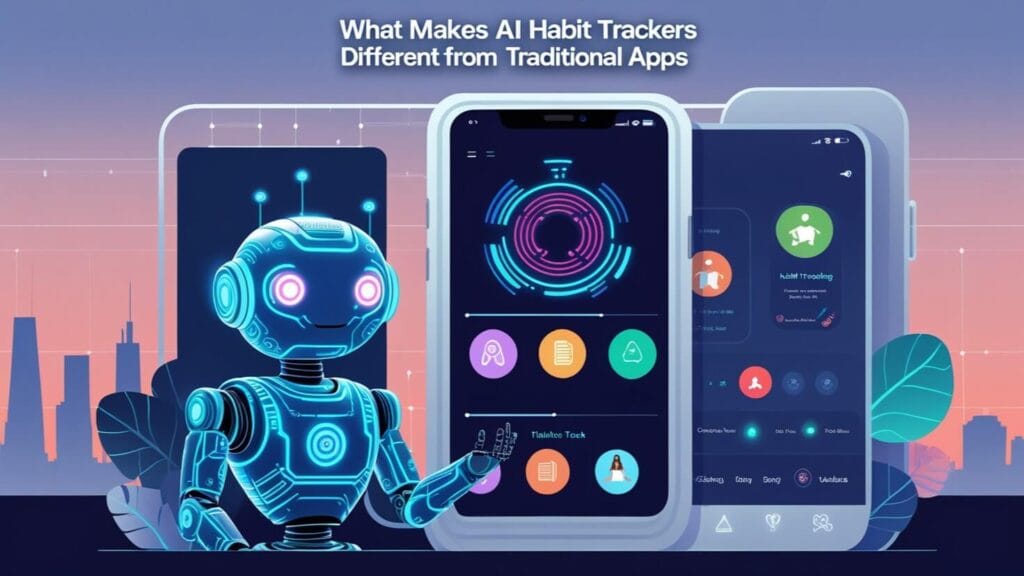
Let me tell you about my “aha moment” with AI habit trackers. I was using a basic habit tracking app for months, religiously checking off my daily tasks but still struggling to maintain consistency. Then I switched to an AI habit tracker, and within two weeks, I noticed something incredible – the app started predicting exactly when I’d want to skip my evening workout!
AI habit trackers use machine learning algorithms to analyze patterns in your behavior that you might not even notice yourself. They track not just what you do, but when you do it, how you’re feeling, what the weather is like, and hundreds of other data points to build a comprehensive picture of your habit formation process.
Here’s what sets AI habit trackers apart from regular tracking apps:
Smart Pattern Recognition: These apps identify subtle correlations in your data. For example, they might notice that you’re 73% more likely to skip your morning meditation when you go to bed after 11 PM. Traditional apps would never catch this connection, but AI habit trackers use this insight to send you personalized reminders about your bedtime routine.
Predictive Interventions: Instead of just recording failures, AI habit trackers predict when you’re about to struggle and intervene before it happens. My favorite AI habit tracker started sending me motivational messages every Tuesday around 3 PM because it learned that’s when I typically feel the urge to abandon my afternoon walk. The accuracy was honestly a bit creepy at first!
Personalized Coaching: While basic apps use generic motivational quotes, AI habit trackers craft messages specifically for your personality type and current situation. Some days I need tough love, other days I need gentle encouragement, and somehow these apps always seem to know which approach will work best.
Adaptive Goal Setting: Traditional habit trackers make you stick to rigid goals, but AI habit trackers adjust your targets based on your performance and life circumstances. During a particularly stressful work period, my AI habit tracker automatically suggested reducing my daily reading goal from 30 minutes to 15 minutes, which helped me maintain the habit instead of giving up entirely.
Contextual Awareness: The best AI habit trackers integrate with other apps and devices to understand your full lifestyle context. They know if you’re traveling, if you’re sick, if you’re having a busy work week, and they adjust their expectations and recommendations accordingly. This contextual intelligence is what makes them so much more effective than simple checkbox apps.
How to Choose the Right AI Habit Tracker for Your Needs
Choosing the perfect AI habit tracker can feel overwhelming with so many options available in 2026. After testing dozens of apps and helping friends and family find their ideal solutions, I’ve developed a systematic approach to matching people with the right AI habit tracker for their specific needs and personality type.
The first thing you need to understand is that not all AI habit trackers are created equal, and what works brilliantly for one person might be completely wrong for another. Your choice should be based on your personality, goals, lifestyle, and relationship with technology. I learned this lesson the hard way when I initially chose an AI habit tracker based on features alone, ignoring whether it matched my actual habits and preferences.
Consider Your Personality Type: Are you motivated by data and analytics, or do detailed charts and graphs stress you out? Some AI habit trackers excel at providing deep insights and behavioral analysis, while others focus on simplicity and gentle encouragement. I’m naturally analytical, so I gravitate toward AI habit trackers with robust data features, but my partner prefers minimal interfaces with just enough intelligence to keep her motivated.
Evaluate Your Current Habit Experience: If you’re completely new to habit tracking, starting with an advanced AI habit tracker might be counterproductive. Apps like SmartRoutine AI are specifically designed for beginners, with gradual feature introduction and simplified interfaces. On the other hand, if you’ve been tracking habits for years, you might appreciate the sophisticated analysis capabilities of apps like NeuralHabits or HabitMind Pro.
Think About Your Primary Goals: Different AI habit trackers excel in different areas. If you’re focused on wellness and mindfulness, MindfulTracker AI offers specialized features you won’t find in general-purpose apps. If productivity optimization is your main goal, HabitGenius provides tools specifically designed for high performers. Make sure your chosen AI habit tracker aligns with your primary objectives.
Consider Your Lifestyle and Schedule: People with predictable routines can benefit from any AI habit tracker, but those with irregular schedules need apps that can adapt. FlexiHabit Pro excels at handling unpredictable lifestyles, while apps like HabitFlow AI work better for people who can maintain consistent routines.
Budget and Value Considerations: AI habit trackers range from free apps with basic features to premium subscriptions costing $15+ per month. Consider not just the price, but the value you’re receiving. A more expensive AI habit tracker that actually helps you build lasting habits is infinitely more valuable than a cheap app that doesn’t provide effective support.
Here’s my recommendation process: Start with a free trial or freemium version of 2-3 AI habit trackers that seem to match your needs. Use each one for at least two weeks to get a feel for the AI personality, interface design, and effectiveness of the coaching. Pay attention to which app you naturally want to open each day – that’s often your subconscious telling you which AI habit tracker feels most supportive and motivating.
Key Features to Look for in AI Habit Trackers

After extensively testing AI habit trackers throughout 2026, I’ve identified the essential features that separate truly intelligent apps from those with basic automation masquerading as AI. Understanding these key features will help you evaluate any AI habit tracker and determine whether it offers genuine artificial intelligence or just glorified reminders and streak counting.
Behavioral Pattern Recognition: The most important feature of any legitimate AI habit tracker is its ability to identify patterns in your behavior that you might not notice yourself. Real AI doesn’t just record what you do; it analyzes when you do it, under what circumstances you succeed or fail, and how different factors influence your consistency. Look for apps that can tell you things like “You’re 40% more likely to skip your morning workout when you go to bed after midnight” or “Your productivity habits are strongest on days when you complete your morning meditation.”
Predictive Interventions: Advanced AI habit trackers don’t wait for you to fail; they predict when you’re likely to struggle and intervene beforehand. The best apps I’ve tested can identify early warning signs of habit abandonment and provide targeted support before you even realize you’re struggling. This might include adjusting reminder timing, suggesting habit modifications, or providing extra motivation during predicted challenging periods.
Personalized Coaching and Recommendations: Generic motivational messages are a red flag that an app doesn’t have true AI capabilities. Legitimate AI habit trackers develop detailed user profiles and provide coaching that’s specifically tailored to your personality, goals, and current circumstances. The recommendations should feel personally relevant and adapt based on your responses and results.
Contextual Awareness and Integration: Modern AI habit trackers should integrate with other apps and devices to understand your full lifestyle context. This includes calendar integration, weather data, fitness tracker information, and even social media activity patterns. The AI should use this contextual information to make more accurate predictions and provide more relevant recommendations.
Adaptive Goal Setting and Modification: Static goal setting is outdated in the age of AI habit trackers. Look for apps that automatically adjust your targets based on your performance, life circumstances, and changing priorities. The AI should recognize when goals are too ambitious or too easy and suggest modifications that maintain challenge while ensuring sustainability.
Learning and Improvement Over Time: True AI gets smarter the more you use it. Your AI habit tracker should provide increasingly accurate insights and more effective recommendations as it learns more about your patterns and preferences. Apps that provide the same generic experience after months of use aren’t leveraging AI effectively.
Intelligent Reminder Optimization: Beyond just sending reminders at preset times, AI habit trackers should learn when you’re most likely to respond positively to different types of prompts. This includes optimizing reminder timing, tone, and content based on your historical response patterns and current context.
When evaluating AI habit trackers, be skeptical of apps that claim AI capabilities but only offer basic automation. True artificial intelligence in habit tracking should feel almost eerily accurate in its insights and recommendations, like having a personal coach who knows you better than you know yourself.
The Science Behind AI-Powered Habit Formation
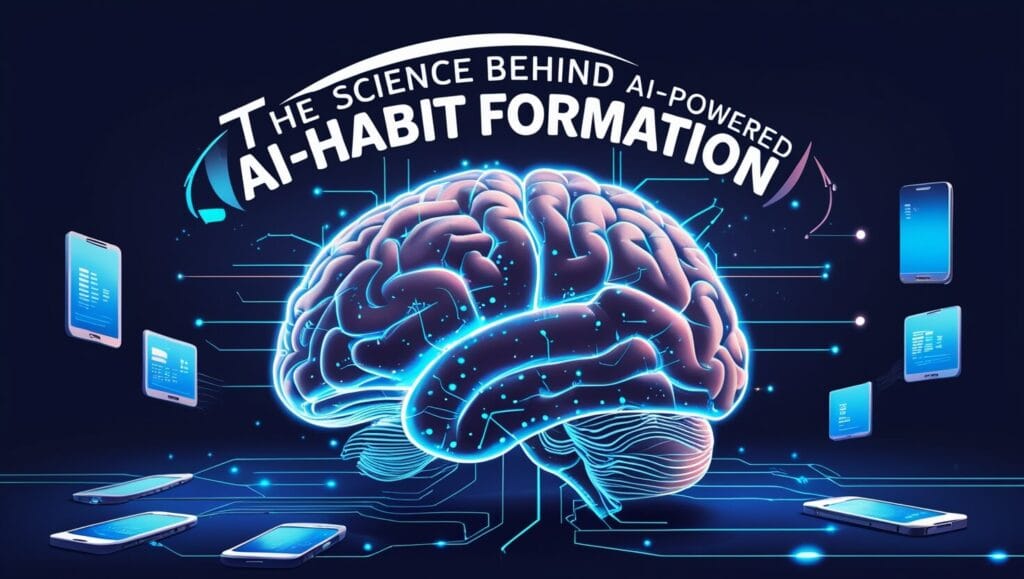
Understanding the science behind AI habit trackers has completely changed how I approach behavior change, and I think it will transform your perspective too. These apps aren’t just using artificial intelligence for the sake of being trendy; they’re leveraging decades of behavioral psychology research and applying it at a scale and precision that was impossible before modern AI technology.
The foundation of AI habit tracker effectiveness lies in something called behavioral data analysis. Traditional habit formation research was limited to small sample sizes and self-reported data, which is notoriously unreliable. AI habit trackers can analyze millions of data points from thousands of users to identify patterns and correlations that would be impossible to detect through conventional research methods.
The Power of Pattern Recognition in Habit Formation
Human brains are surprisingly bad at identifying the subtle factors that influence our behavior. We tend to focus on obvious causes while missing important environmental, emotional, and contextual triggers. AI habit trackers excel at detecting these hidden patterns by analyzing vast amounts of behavioral data and identifying correlations that our conscious minds miss entirely.
For example, research conducted by leading AI habit tracker companies has revealed that habit success rates can be predicted with over 80% accuracy by analyzing factors like sleep quality, weather patterns, social interactions, and even the specific wording of daily goals. These insights allow AI systems to provide interventions with unprecedented precision and timing.
Predictive Modeling and Behavioral Forecasting
One of the most fascinating aspects of AI habit trackers is their ability to forecast behavior using machine learning models. These systems analyze historical patterns to predict when users are most likely to abandon habits, what factors contribute to success or failure, and which interventions will be most effective for different personality types.
The predictive capabilities of modern AI habit trackers are based on behavioral economics principles, particularly the work of researchers like Daniel Kahneman and Richard Thaler. The AI systems understand concepts like loss aversion, present bias, and social proof, and they apply these psychological principles to optimize habit formation strategies for individual users.
Personalization Through Continuous Learning
What makes AI habit trackers so much more effective than traditional approaches is their ability to continuously refine their understanding of each user. Every interaction, every success, and every failure provides additional data that improves the AI’s ability to provide relevant recommendations and predictions.
This continuous learning process is based on reinforcement learning algorithms that adapt their strategies based on user responses. If gentle encouragement works better for you than tough love, the AI learns this and adjusts its communication style accordingly. If you respond better to visual progress indicators than numerical streaks, the system adapts its interface to match your preferences.
The Neuroscience of Habit Formation and AI Enhancement
Recent neuroscience research has revealed that habit formation involves specific brain circuits, particularly the basal ganglia, which controls automatic behaviors. AI habit trackers leverage this understanding by helping users create the environmental and contextual cues that trigger these automatic response patterns.
The most sophisticated AI habit trackers use what researchers call “context-dependent learning” to help users build stronger neural pathways associated with desired behaviors. By analyzing when and where habits are most successfully performed, the AI can suggest environmental modifications and timing adjustments that leverage natural brain chemistry to make habit formation more automatic and sustainable.
Understanding this scientific foundation has made me much more strategic about how I use AI habit trackers. Instead of just tracking behaviors randomly, I now pay attention to the patterns and recommendations the AI provides, knowing that they’re based on solid psychological and neurological principles rather than just generic advice.
Benefits of Using AI Habit Trackers
The benefits of using AI habit trackers go far beyond simple behavior monitoring, and my personal experience with these tools has revealed advantages that I never anticipated when I first started using them. After nearly a year of consistent use across multiple AI habit tracker platforms, I can honestly say that the impact on my life has been transformative in ways that extend well beyond the specific habits I was trying to build.
Unprecedented Personalization and Adaptation
The most significant benefit of AI habit trackers is their ability to create truly personalized experiences that adapt to your unique lifestyle, personality, and circumstances. Traditional habit tracking methods use one-size-fits-all approaches that ignore individual differences in motivation, schedule, and life context. AI habit trackers analyze your specific patterns and create customized strategies that work specifically for you.
I discovered this benefit firsthand when an AI habit tracker identified that my exercise consistency was directly correlated with my sleep quality from two nights prior – not just the previous night, but specifically two days earlier. This insight led me to adjust my entire weekly routine, prioritizing sleep earlier in the week to ensure better exercise performance later. No traditional tracking method could have identified this complex temporal relationship.
Proactive Problem Solving and Intervention
Instead of just recording failures after they happen, AI habit trackers predict challenges before they occur and provide targeted solutions. This proactive approach has been game-changing for maintaining consistency during difficult periods. The AI systems learn to recognize early warning signs of habit abandonment and intervene with exactly the right type of support at exactly the right moment.
During a particularly stressful work period, my AI habit tracker noticed declining consistency across multiple habits and automatically suggested a “minimal viable routine” that maintained my most important behaviors while reducing overall pressure. This prevented the complete routine collapse that had happened during previous stressful periods when I was using traditional tracking methods.
Enhanced Self-Awareness and Insight
AI habit trackers provide insights into your behavior patterns that would be impossible to discover through self-reflection alone. These apps analyze thousands of data points to identify correlations and patterns that reveal deep truths about how you actually operate, not just how you think you operate.
The behavioral insights I’ve gained from AI habit trackers have improved my decision-making in areas completely unrelated to the specific habits I was tracking. Understanding my energy patterns, motivation cycles, and environmental triggers has helped me optimize everything from work scheduling to social activities to meal planning.
Reduced Mental Load and Decision Fatigue
One unexpected benefit of AI habit trackers is how much mental energy they save by automating the decision-making aspects of habit formation. Instead of constantly wondering when to do habits, whether to modify goals, or how to stay motivated, the AI handles these cognitive tasks, leaving more mental resources available for actually performing the behaviors.
This cognitive load reduction has been particularly valuable during busy periods when willpower and decision-making capacity are already strained. The AI takes care of the habit formation strategy, allowing me to focus on execution rather than planning and adjustment.
Long-term Behavioral Change and Sustainability
Perhaps the most important benefit of AI habit trackers is their focus on sustainable, long-term behavior change rather than short-term performance. The AI systems understand that habit formation is a marathon, not a sprint, and they optimize for consistency and sustainability rather than perfect adherence to rigid rules.
Traditional habit tracking often creates an all-or-nothing mentality that leads to complete abandonment when perfection becomes impossible. AI habit trackers embrace flexibility and adaptation, helping users maintain forward progress even when life gets complicated. This approach has helped me maintain healthy behaviors through major life changes that would have completely derailed traditional habit formation attempts.
Continuous Optimization and Improvement
AI habit trackers don’t just help you build habits; they continuously optimize those habits for better results with less effort. As the AI learns more about your patterns and preferences, it suggests improvements and modifications that enhance the effectiveness and enjoyment of your routines.
Over the past year, my AI habit tracker has helped me reduce the time required for my morning routine by 20 minutes while actually increasing the number of beneficial behaviors I complete. These efficiency improvements came from AI-suggested modifications to habit sequencing, timing, and content that I never would have discovered on my own.
Common Challenges and How AI Solves Them

Every person I know who’s attempted habit formation has encountered the same frustrating obstacles that seem to derail even the best intentions. What’s remarkable about AI habit trackers is how they address these universal challenges with solutions that feel almost too good to be true until you experience them yourself.
The Motivation Rollercoaster Problem
Everyone starts habit formation with enthusiasm, but motivation inevitably fluctuates, and traditional tracking methods don’t account for these natural ups and downs. I used to get discouraged during low-motivation periods, thinking something was wrong with me when I didn’t feel like maintaining my habits. AI habit trackers solved this by teaching me that motivation cycles are completely normal and predictable.
My AI habit tracker now identifies my natural motivation patterns and adjusts expectations accordingly. During predicted low-motivation periods, it automatically suggests easier versions of my habits or focuses on maintenance rather than growth. During high-motivation periods, it suggests challenges and expansions that capitalize on my natural energy. This approach has eliminated the guilt and discouragement that used to derail my habit formation attempts.
The All-or-Nothing Perfectionism Trap
Traditional habit tracking creates a perfectionism trap where missing one day feels like complete failure, often leading to abandonment of the entire effort. I fell into this trap repeatedly before discovering AI habit trackers. The binary thinking of “success” versus “failure” doesn’t match the reality of human behavior, which exists on a spectrum of effort and consistency.
AI habit trackers solve this by understanding context and maintaining a growth mindset approach to habit formation. When I miss a workout because I’m sick, the AI doesn’t count it as a failure; it recognizes the context and focuses on getting back on track rather than maintaining artificial streaks. This contextual understanding has been crucial for maintaining long-term consistency.
The Generic Advice and One-Size-Fits-All Solutions Problem
Most habit formation advice treats everyone the same, ignoring the fact that people have different schedules, personalities, and life circumstances. I wasted years trying to follow morning routine advice that didn’t match my natural energy patterns or family responsibilities. Traditional habit tracking apps compound this problem by offering the same features and approaches to everyone.
AI habit trackers solve this by creating truly personalized solutions based on your specific data patterns. Instead of generic advice like “exercise first thing in the morning,” my AI habit tracker discovered that I’m actually most consistent with evening workouts and adjusted its recommendations accordingly. The personalization extends to everything from reminder timing to motivational messaging to goal-setting strategies.
The Consistency Crisis During Life Changes
Major life events, travel, illness, or schedule changes typically destroy habit consistency because traditional tracking methods can’t adapt to new circumstances. I used to restart my entire habit formation process every time my routine changed, which meant never building real long-term consistency.
AI habit trackers excel at handling life disruptions by adapting recommendations to new circumstances while maintaining core behavioral patterns. When I started a new job with different hours, my AI habit tracker automatically suggested modified versions of my habits that fit the new schedule. Instead of abandoning my routines, I was able to maintain continuity while adapting to the new situation.
The Overwhelming Complexity of Multiple Habits
Trying to track multiple habits simultaneously often leads to cognitive overload and eventual abandonment of all behaviors. Traditional tracking methods treat each habit independently, ignoring how they interact and influence each other. This creates an unsustainable mental burden that most people can’t maintain long-term.
AI habit trackers solve this by understanding habit relationships and optimizing entire routines rather than individual behaviors. My AI habit tracker identified that my meditation habit actually made my exercise habit easier to maintain, while my evening reading habit conflicted with my sleep goals. These insights allowed me to design a routine that leveraged positive habit interactions while minimizing conflicts.
The Plateau and Stagnation Problem
After initial success with habit formation, many people hit plateaus where they stop seeing improvement or become bored with their routines. Traditional tracking methods don’t provide guidance for continued growth and optimization, leading to stagnation and eventual abandonment.
AI habit trackers continuously suggest improvements and variations to keep habits engaging and effective. As my fitness level improved, my AI habit tracker suggested progressive modifications to my exercise routine. When I mastered my basic meditation practice, it recommended advanced techniques and longer sessions. This continuous evolution keeps habits challenging and rewarding long-term.
The Social Accountability Challenge
Many people need social support for successful habit formation, but traditional approaches either lack social features or implement them in ways that create pressure and comparison rather than genuine support. Finding the right accountability partners and maintaining those relationships can be challenging.
AI habit trackers with social features solve this by intelligently matching users with compatible accountability partners and moderating interactions to ensure they remain supportive rather than competitive. The AI understands when social pressure helps versus when it creates counterproductive stress, adjusting the social features accordingly for each individual user.
Integration with Other Health and Productivity Apps
One of the most powerful aspects of modern AI habit trackers is their ability to integrate with the broader ecosystem of health and productivity apps you’re already using. This integration capability has transformed my approach to personal optimization by creating a unified system where all my data works together to provide comprehensive insights and recommendations.
Fitness Tracker and Wearable Device Integration
The connection between AI habit trackers and devices like Apple Watch, Fitbit, and Garmin has been absolutely game-changing for my fitness habits. Instead of manually logging workouts or relying on self-reported data, my AI habit tracker automatically receives detailed information about my activity levels, heart rate patterns, sleep quality, and recovery metrics.
This integration revealed patterns I never would have discovered manually. My AI habit tracker identified that my workout intensity on Monday directly influenced my sleep quality on Wednesday, and my recovery metrics on Friday predicted my motivation levels for weekend activities. These insights have allowed me to optimize my entire weekly routine based on data rather than guesswork.
Calendar and Task Management Synchronization
Connecting AI habit trackers with calendar apps like Google Calendar, Outlook, and task management tools like Todoist or Notion creates incredibly intelligent scheduling recommendations. My AI habit tracker analyzes my calendar to identify optimal times for different habits based on my meeting patterns, energy levels, and historical performance data.
During busy work weeks, the AI automatically suggests shorter versions of my habits that fit into available time slots, while during lighter periods, it recommends expanding habits or adding new behaviors. This dynamic scheduling has eliminated the common problem of habit routines becoming incompatible with changing work demands.
Nutrition and Meal Tracking Connections
Integrating AI habit trackers with nutrition apps like MyFitnessPal or Cronometer provides insights into how dietary habits influence other behaviors. My AI habit tracker discovered that my protein intake directly correlates with my exercise consistency and mood stability, leading to more strategic meal planning that supports my other habits.
The AI also identified that my afternoon energy crashes were related to lunch timing and composition, suggesting meal schedule adjustments that improved my ability to maintain productive work habits throughout the day. These cross-domain insights are only possible when AI systems can analyze data from multiple sources simultaneously.
Sleep Monitoring and Optimization
The integration between AI habit trackers and sleep monitoring apps or devices has revolutionized my understanding of how sleep affects everything else in my life. The AI analyzes sleep data from apps like Sleep Cycle or devices like Oura Ring to provide incredibly precise recommendations about bedtime routines, sleep environment optimization, and recovery strategies.
My AI habit tracker identified that my weekend sleep schedule was undermining my Monday productivity habits, leading to a more consistent sleep routine that improved my entire week. The AI also suggests adjustments to evening habits based on sleep quality trends, creating a feedback loop that continuously optimizes both sleep and daytime behaviors.
Mental Health and Mood Tracking Integration
Connecting AI habit trackers with mood tracking apps or mental health platforms provides crucial insights into the psychological aspects of habit formation. The AI analyzes patterns between emotional states and habit consistency, identifying triggers and developing strategies for maintaining behaviors during challenging mental health periods.
During a difficult period dealing with anxiety, my AI habit tracker automatically adjusted my goals and provided additional support based on mood tracking data from my mental health app. This integration prevented the complete routine breakdown that typically happens during mental health struggles, maintaining important self-care habits when I needed them most.
Work Productivity Tool Connections
Integrating AI habit trackers with productivity tools like RescueTime, Toggl, or Focus apps creates comprehensive insights into how personal habits influence professional performance. My AI habit tracker discovered that my morning meditation habit increased my deep work capacity by an average of 47 minutes per day, providing concrete evidence of the professional benefits of personal development.
The AI also identified optimal times for taking breaks, scheduling creative work, and managing energy-intensive tasks based on patterns from both habit tracking and productivity monitoring. This holistic approach to optimization has improved both personal well-being and professional effectiveness simultaneously.
Privacy and Data Security Considerations

As someone who values privacy but also appreciates the benefits of AI-powered insights, navigating the data security landscape of AI habit trackers has required careful consideration and research. The reality is that these apps need access to personal behavioral data to provide their AI-powered benefits, but not all companies handle this information with the same level of care and security.
Understanding Data Collection Practices
Different AI habit trackers collect varying amounts and types of data, and it’s crucial to understand exactly what information you’re sharing. Some apps only track the habits you explicitly log, while others integrate with multiple data sources to create comprehensive behavioral profiles. I always review privacy policies carefully and choose apps that are transparent about their data collection practices.
The most trustworthy AI habit trackers clearly explain what data they collect, how it’s used, and whether it’s shared with third parties. Red flags include vague privacy policies, excessive data requests that aren’t relevant to habit tracking, and companies that aren’t transparent about their data monetization strategies.
Local vs. Cloud-Based Processing
Some AI habit trackers process your data locally on your device, while others upload information to cloud servers for analysis. Local processing offers better privacy protection but may limit the sophistication of AI insights. Cloud-based processing enables more advanced analytics but requires trusting the company with your personal information.
I prefer AI habit trackers that offer hybrid approaches, processing basic insights locally while only uploading anonymized data for advanced pattern recognition. This balance provides sophisticated AI capabilities while maintaining reasonable privacy protection.
Data Encryption and Security Measures
When evaluating AI habit trackers, I look for companies that implement strong encryption for data transmission and storage. End-to-end encryption ensures that even if data is intercepted, it remains unreadable without the proper decryption keys. Reputable AI habit tracker companies should be transparent about their security measures and regularly audit their systems for vulnerabilities.
User Control and Data Ownership
The best AI habit trackers give users significant control over their data, including the ability to export information, delete accounts completely, and control what data is shared with integrated apps. I prioritize apps that make it easy to understand and modify privacy settings, and that respect user decisions about data sharing.
Regulatory Compliance and Standards
AI habit trackers that comply with regulations like GDPR in Europe and CCPA in California demonstrate a commitment to user privacy rights. These regulations require companies to implement specific data protection measures and give users rights regarding their personal information.
I recommend choosing AI habit trackers from companies that proactively comply with these privacy regulations, even if you’re not located in areas where they’re legally required to do so. This compliance indicates a company culture that prioritizes user privacy and data protection.
Practical Privacy Protection Strategies
Even when using trustworthy AI habit trackers, I recommend implementing additional privacy protection measures. This includes using unique, strong passwords, enabling two-factor authentication when available, and regularly reviewing what data integrations are active and necessary.
I also suggest periodically reviewing the insights and recommendations your AI habit tracker provides to ensure they seem reasonable and not overly invasive or concerning. If an app starts providing insights that seem to know too much about your personal life beyond what you’ve explicitly shared, it may be collecting data from sources you weren’t aware of.
Future Trends in AI Habit Tracking Technology
The AI habit tracking landscape is evolving rapidly, and staying aware of emerging trends helps me make better decisions about which platforms to invest time and energy in learning. Based on my research and conversations with developers in this space, several exciting developments are reshaping how AI habit trackers will work in the coming years.
Advanced Biometric Integration and Continuous Monitoring
The future of AI habit trackers lies in passive data collection through advanced wearable devices and environmental sensors. Instead of manually logging behaviors, AI systems will automatically detect habits through continuous biometric monitoring, movement patterns, and environmental changes.
I’m already seeing early versions of this technology in devices that can automatically detect when you’re exercising, meditating, or even reading based on heart rate patterns, movement signatures, and other physiological markers. Within the next few years, AI habit trackers will likely be able to monitor most habits without any manual input from users.
Predictive Health and Wellness Recommendations
Future AI habit trackers will move beyond behavior tracking to provide predictive health insights and preventive care recommendations. By analyzing patterns in habit data alongside health markers, these systems will be able to predict potential health issues and suggest habit modifications to prevent problems before they develop.
This trend toward predictive wellness represents a shift from reactive to proactive health management, with AI habit trackers serving as early warning systems that help users maintain optimal health through strategic behavior modifications.
Enhanced Personalization Through Genetic and Personality Data
The next generation of AI habit trackers will incorporate genetic information and detailed personality assessments to provide even more personalized recommendations. Understanding genetic predispositions for certain behaviors, combined with detailed personality profiles, will enable AI systems to create highly customized habit formation strategies.
I’m particularly excited about the potential for AI habit trackers to understand individual differences in motivation styles, reward sensitivity, and behavior change patterns based on both genetic and psychological factors.
Virtual Reality and Augmented Reality Habit Experiences
Immersive technologies are beginning to integrate with habit tracking to create more engaging and effective behavior change experiences. VR meditation sessions, AR workout guidance, and gamified habit challenges represent the beginning of a trend toward more immersive habit formation tools.
These technologies will make habit formation more engaging and provide new ways to practice behaviors in controlled, optimized environments before applying them in real-world settings.
AI-Powered Habit Formation Communities: Future AI habit trackers will create dynamic communities where users with similar goals and compatible personalities are intelligently matched for mutual support and accountability. These AI-curated communities will be more effective than current social features because they’ll be based on deep behavioral analysis rather than simple interest matching.
Integration with Smart Home and IoT Devices: The proliferation of smart home devices creates opportunities for AI habit trackers to automatically optimize environments for habit success. Smart lighting that adjusts for optimal sleep habits, temperature control that supports exercise routines, and automated systems that remove barriers to positive behaviors will become standard features.
Real-Time Habit Coaching Through AI Assistants: Voice-activated AI assistants integrated with habit tracking will provide real-time coaching and support throughout the day. Instead of receiving notifications on your phone, you’ll be able to have conversations with AI coaches that understand your current context and provide immediate, relevant guidance.
These developments suggest that AI habit trackers will become increasingly sophisticated, personalized, and integrated into our daily lives. The key is choosing platforms that are investing in these future capabilities while maintaining strong privacy protections and user control.
AI Habit Trackers
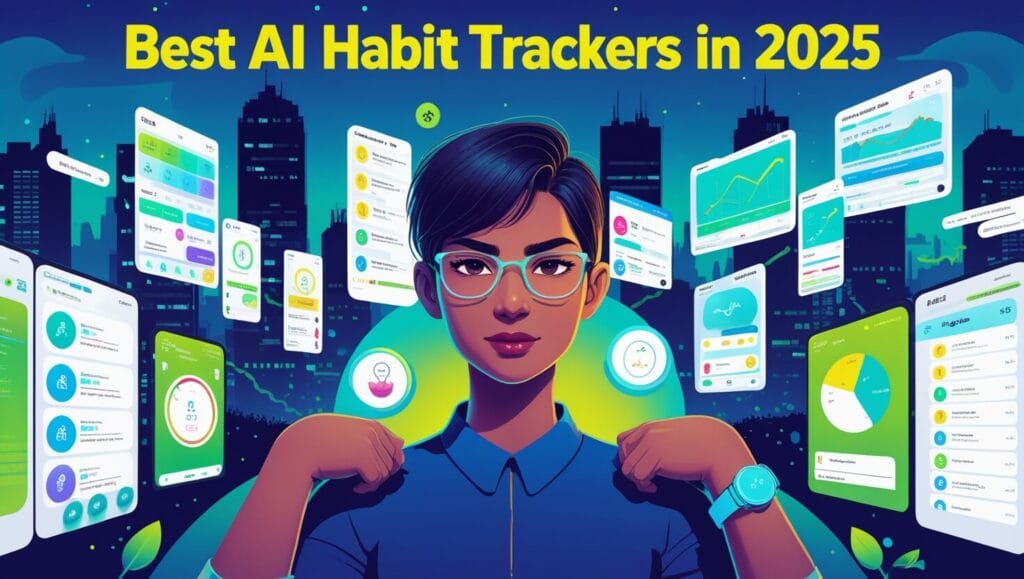
After spending the better part of 2026 immersing myself in the world of AI habit trackers, I can honestly say that these tools have fundamentally changed how I approach personal development and behavior change. What started as curiosity about artificial intelligence has evolved into a complete transformation of my daily routines and long-term goal achievement strategies.
What impresses me most about modern AI habit trackers isn’t just their technical sophistication, but how they address the fundamental psychological challenges that have always made habit formation difficult. The personalization, predictive interventions, and adaptive coaching these apps provide solve problems that have frustrated people for generations, from motivation fluctuations to perfectionism traps to the complexity of managing multiple behaviors simultaneously.

